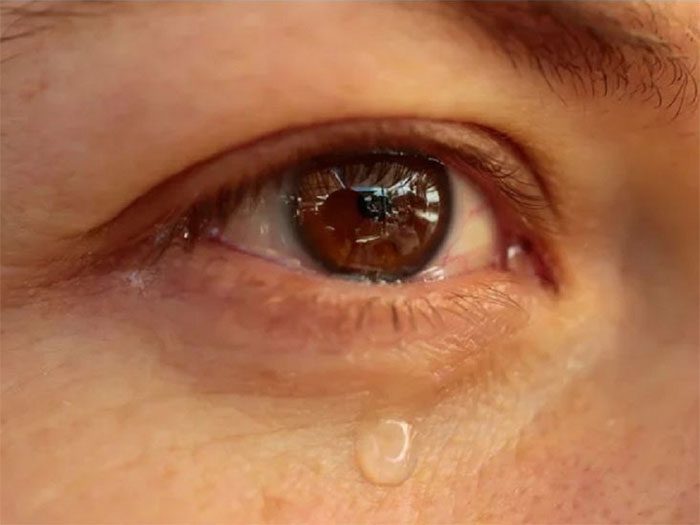A Chinese man has recently been diagnosed with “crocodile tear syndrome”, a rare medical condition that causes him to shed tears every time he eats.
Tears are typically triggered by strong emotional responses, such as sadness, pain, or uncontrollable laughter, but in some rare cases, they can be triggered by benign stimuli like eating.
Last year, according to Chinese media, an elderly man named Zhang began experiencing tearfulness while eating.

The condition is closely related to the man’s previous facial paralysis. (Illustrative image).
Initially, he did not mind it. However, the longer he chewed, the worse the crying became. Each time he finished a bowl of rice, his face was drenched in tears. This significantly affected his quality of life.
Zhang started to avoid eating in public, fearing that tears would stream down his face in front of others, leading to his social isolation.
Fortunately, he realized that this was not something he could hide forever and decided to see a doctor.
Last month, Mr. Zhang visited a hospital in Wuhan for a health check-up and was diagnosed with a rare condition commonly referred to as “crocodile tear syndrome.”
Dr. Cheng Mian Chinh, the head of the ophthalmology department at the hospital, explained that this condition is closely related to the man’s prior facial paralysis.
The recovery process after his facial paralysis affected the functioning of his tear glands, particularly in his left eye.
During recovery, the facial nerves became misaligned, and the salivary nerve “misconnected” to the tear gland instead of the submandibular gland.
As a result, this nerve misalignment caused stimuli such as the smell or taste of food to trigger tear production instead of saliva.
The symptoms of crocodile tear syndrome vary among patients, and milder cases are often treated with counseling and regular monitoring.
In more severe cases, the most common treatment is injecting botulinum toxin into the tear gland to block the transmission along the abnormally regenerated nerves to the affected gland. The effects of this toxin last approximately six months.
Surgical intervention is also an option, and this was the chosen approach for Mr. Zhang. His condition has significantly improved, although it remains unclear whether the effects will last permanently.



















































